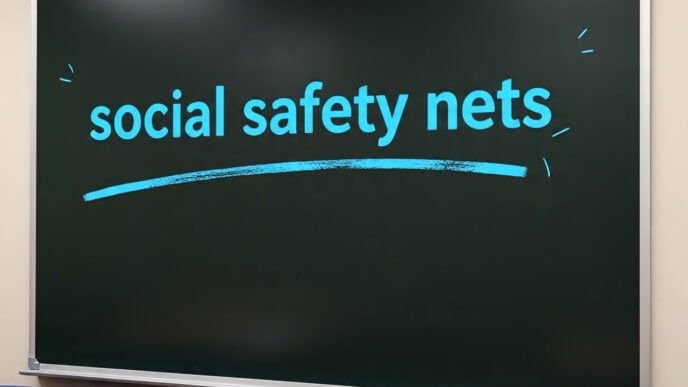Sujimoto’s CEO Sijibomi Ogundele in tears
BY OLUFISAYO OSINDEINDE
In recent months, Nigeria’s public sphere has been punctuated by a curious spectacle: leaders and celebrities taking to video not just to explain themselves, but to do so through tears. From the embattled real estate magnate, Sujimoto’s CEO Sijibomi Ogundele, tearfully denying fraud allegations, to earlier instances across the entertainment world, the crying apology has increasingly become the weapon of choice in reputation management.
Only weeks earlier, Fuji maestro KWAM 1 issued his own public apology for a disruptive airport incident. Though his was measured and devoid of theatrics, the contrast with Sujimoto’s tear-tinged plea underscored a growing trend: Is crying now a tired damage-control rhetoric?
The “apology video” has become a genre of its own, complete with tropes so recognisable they could be scripted. A plain background. A softer, dimly lit frame. The unguarded face. And then, inevitably, the quiver in the voice, followed by breaking down into tears. The strategy is simple: to collapse the distance between the public figure and the public itself, to signal vulnerability where there was once hubris, and to make empathy override anger. It is meant to humanise. But like every script, repetition breeds suspicion. The more leaders cry on camera, the more audiences ask: Is this confession sincere or just another performance?
The danger of performance lies in its predictability. When America’s infamous “crying CEO” posted a tear-streaked selfie on LinkedIn after laying off staff, he expected sympathy but found ridicule instead. Commenters accused him of weaponising vulnerability for optics, turning employees’ pain into his own spotlight. Similarly, when Polish executive Piotr Szczerek belatedly apologised after an ugly public incident, his emotion did little to repair his image; the apology was received as hollow and too late. These global examples mirror the scepticism rising here: the tears may flow, but trust does not follow.
Advertisement
The Nigerian political theatre has produced its share of tearful episodes, too. This time, from those elected to lead. Years ago, Senator Smart Adeyemi, during a Senate debate on national security, was seen to be visibly emotional as he lamented, “Nigeria has collapsed,” his voice cracking with urgency as he pleaded for swift action amidst rising threats.
More recently, Senator Godswill Akpabio was reduced to tears while attempting to justify why he couldn’t recall fellow lawmaker Natasha Akpoti for her Senate seat. A moment that critics immediately labelled as political theatre meant more for optics than for accountability. These moments highlight the pervasiveness of performative emotion: not just in corporate or celebrity crisis videos, but also under pressure in the nation’s capital, raising the question of whether such dramatic tears signal genuine grief or are a scripted fallback in moments of discomfort.
Part of the fatigue many of us feel today comes from a cultural shift. Audiences today are savvier than ever, armed with both cynicism and smartphones. They can replay a video, dissect tone and body language, and decide within seconds whether what they are watching is an authentic breakdown or a rehearsed act. In a world where even YouTube influencers have parodied the crying apology, complete with “no makeup” looks and dramatic thumbnails, authenticity is in short supply. Nigerians, who have endured repeated cycles of public betrayal, are especially alert to insincerity. Tears, in this climate, are not enough.
Yet, to dismiss emotion entirely would be a mistake.
Advertisement
Human beings remain responsive to vulnerability. Genuine remorse, when paired with accountability and corrective action, still moves people. The problem is not that leaders cry; it is that they often stop at crying. Sujimoto may insist on his innocence and break down in the process, but the public will not weigh his tears as heavily as they will weigh the evidence and his next steps. KWAM 1’s apology, though drier in delivery (and also not so believable – at least to me), resonated with some people precisely because it avoided melodrama and went straight to responsibility. In all, the lesson is clear: tears without substance are a performance. Responsibility without tears, however, still has the power to heal.
What we are witnessing, then, is not the death of emotion in crisis communication, but the death of its overuse as a standalone strategy. The crying apology has crossed into cliché territory; it is no longer a trump card but a tired play. Audiences are asking for more: honesty, transparency, and a roadmap for change or at the very least, corrective action. In the age of performative remorse, true contrition will be measured not by the tears on one’s face, but by the actions taken when the cameras are off.
So the next time a leader is tempted to reach for the tissue box on camera, perhaps they should pause. Because the public has already seen this movie, they are no longer buying tickets.
Olufisayo is a public relations and communications expert who strives to make every message count. He helps high-profile figures and organisations navigate challenges with clarity, usually with grace, a dash of wit, and just the right amount of heart.
Advertisement
Views expressed by contributors are strictly personal and not of TheCable.











